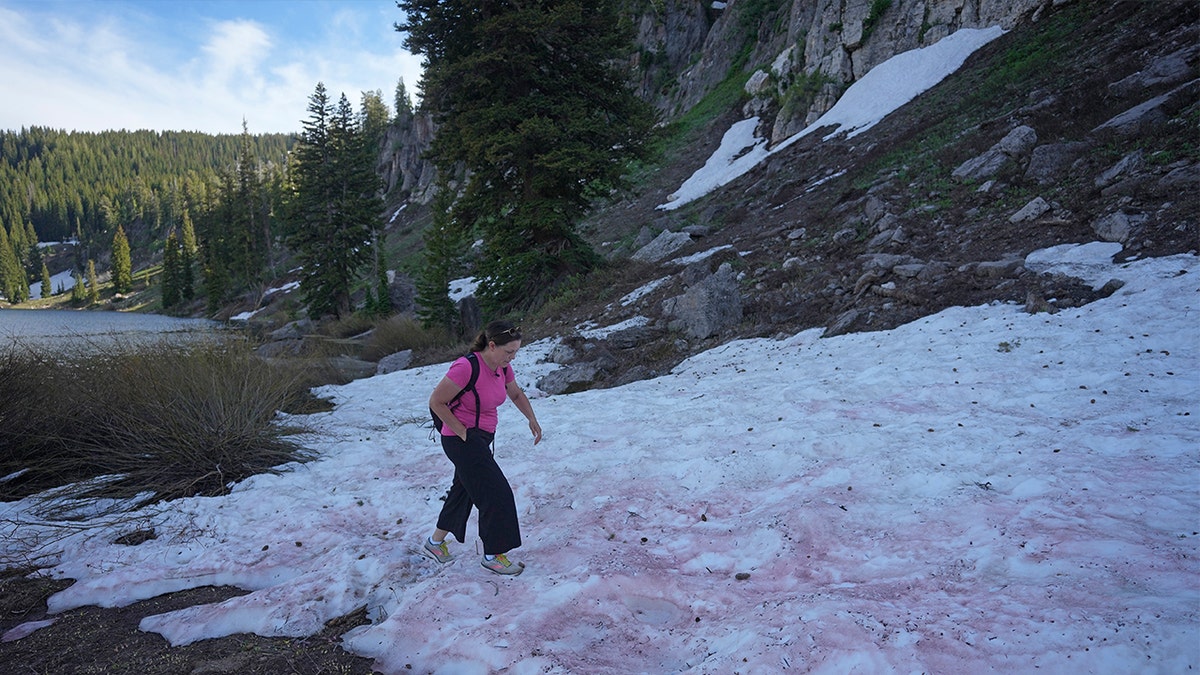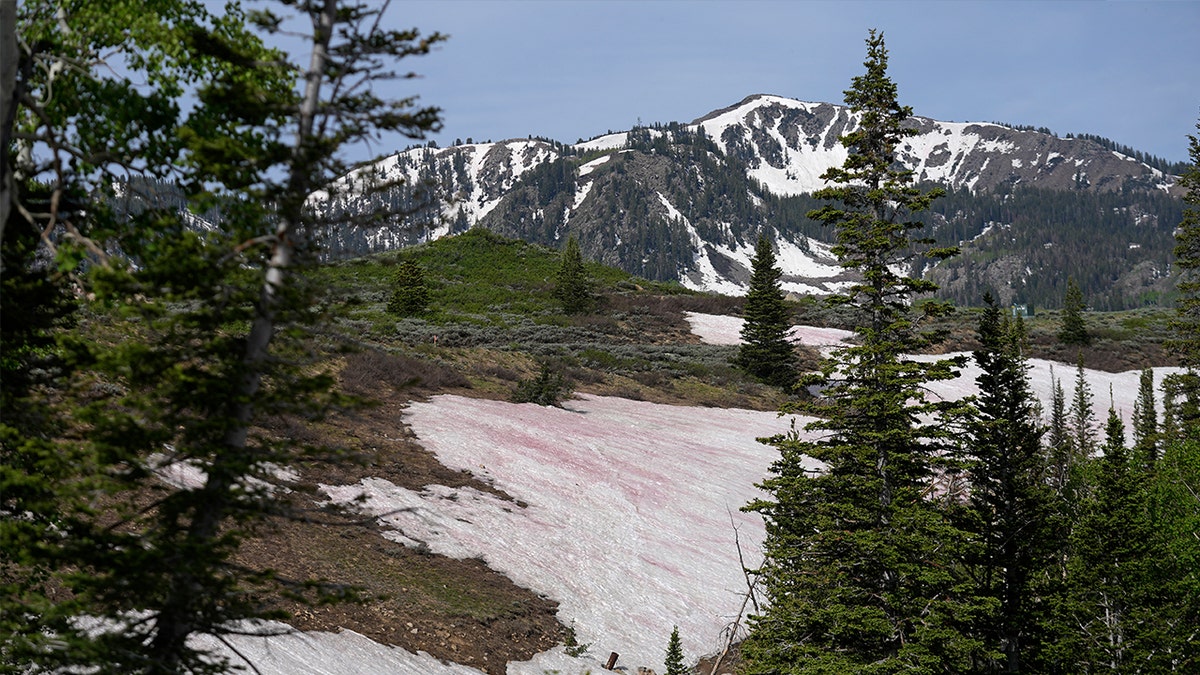The Rocky Mountains are currently showcasing a unique natural phenomenon: patches of pink, purple, and orange snow, sometimes referred to as "watermelon snow." This vibrant spectacle, a result of an unusually wet winter, has captured the attention of hikers, campers, and tourists exploring the mountain ranges near Park City, the Bear River Range, and the Utah-Idaho border.

Hiker Jana Brough examines the pink-hued snow at Tony Grove Lake near Logan, Utah.
Unraveling the Mystery of Watermelon Snow
The U.S. Geological Survey (USGS) explains that this colorful snow is caused by snow algae, single-celled organisms that thrive in freezing temperatures. These algae produce reddish pigments, giving the snow its distinctive watermelon hue. However, these algae can also produce other colors, such as blue, green, brown, and gray, leading to a variety of snowy landscapes.

The vibrant pink snow, caused by algae, blankets Guardsman Pass near Park City, Utah.
These algae typically inhabit glacial ice surfaces, where they utilize sunlight for photosynthesis. According to Scott Hotaling, an ecologist at Utah State University, the algae also produce a secondary pigment to protect themselves from the intense ultraviolet radiation at high altitudes.
Is Watermelon Snow Safe?
While watermelon snow itself isn't inherently harmful to humans or wildlife, experts advise against consuming it. The snow often comes into contact with dirt, dust, and other potential contaminants, which could pose health risks. Hotaling emphasizes that while the pigmented snow isn't directly dangerous, the associated impurities can be.

A hiker observes the pink snow up close at Tony Grove Lake.
The Ocean Conservancy, an environmental advocacy organization, also cautions against consuming watermelon snow. Limited research suggests that ingesting it could lead to digestive issues.
Comments(0)
Top Comments